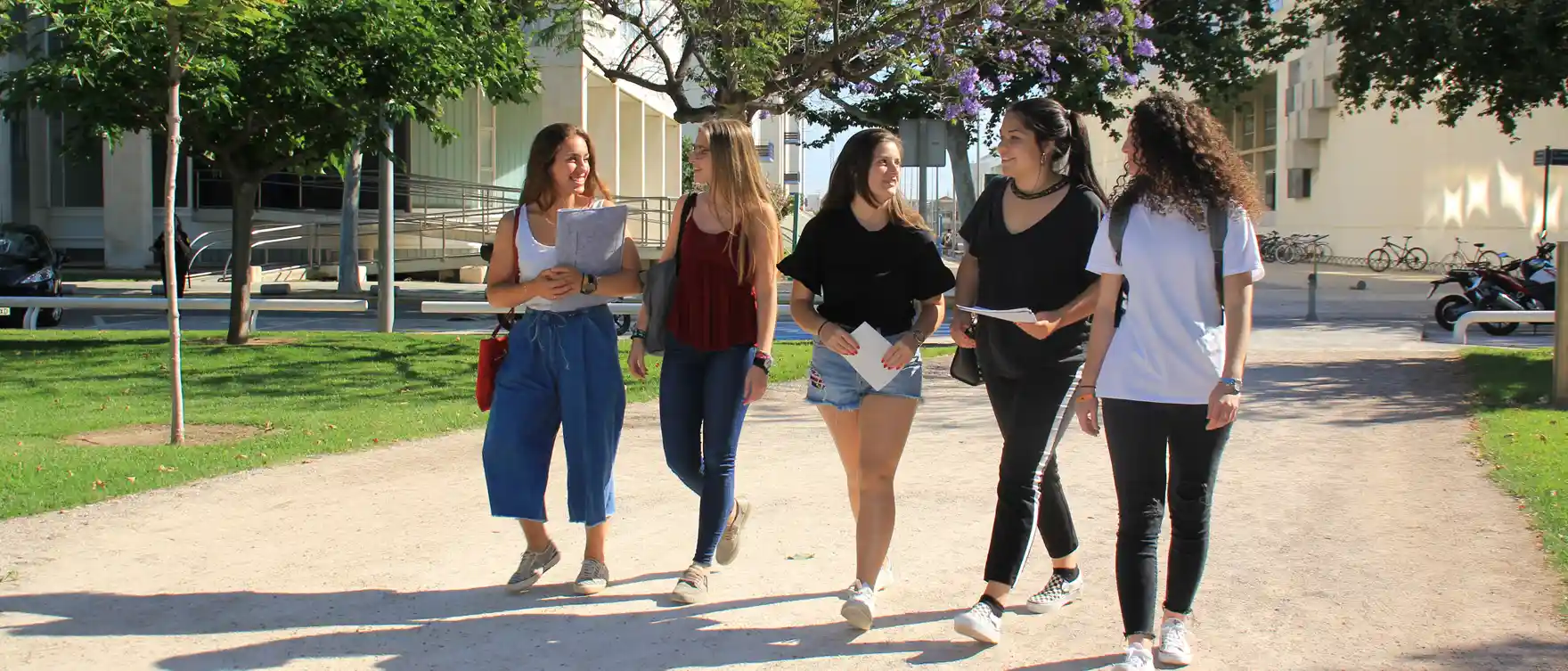Page content
Description of the title
The Master in Data Analysis Engineering, Process Improvement and Decision Making of the Universitat Politècnica de València (UPV) is aimed at training professionals and researchers to analyze data that accurately describe the reality they study and to have tools that allow them to control and improve the processes involved. It combines advanced techniques of data analysis, artificial intelligence, modeling and simulation, with a theoretical-practical and interdisciplinary approach.
Objectives of the degree

Main objective: To train students in the application of analytical methodologies and technological tools for informed decision making and continuous process improvement in complex environments. Through solid training in data analysis, artificial intelligence, modeling, simulation and optimization, the master’s degree seeks to train researchers and professionals with a critical and strategic vision, capable of leading digital transformation, optimization and innovation projects in industrial, business and scientific sectors.
Career opportunities
Graduates of the Master in Data Analysis Engineering, Process Improvement and Decision Making of the Universitat Politècnica de València are prepared to assume key roles in a wide variety of sectors.
- Industry
- Logistics
- Health
- Energy
- Finance
- Public Administration
- Pursue a career in research or a doctoral degree in related fields
- Access to the PhD program in Statistics and Optimization, coordinated between the Universitat Politècnica de València and the Universitat de València.
Aimed primarily at
The Master’s program is designed to attract students with diverse academic backgrounds.
- Graduates of technical careers (engineering).
- Science graduates.
- Graduates in economics.
- Interested in the statistical treatment of experimental data.
- People focused on the development of statistical and optimization models.
- Users of mathematical models.
- Passionate about artificial intelligence techniques.
Structure of the master’s degree
Credits: 60 ECTS
Mandatory:39 ects |Electives:9 ects |External internships:0 ects |Final Master’s thesis (TFM):12 ects
Module 1. Mandatory Module :39 ects mandatory
Subject:Data Analysis
Minimum credits: 10.5 | Character: Compulsory
Subject:Process Improvement
Minimum credits: 19.5 | Character: Mandatory
Subject:Decision Making
Minimum credits: 9 | Character: Compulsory
Module 2. Elective Module :9 electives
Subject:Complementary training in data analysis, process improvement and decision making
Minimum credits: 9 | Character: Elective
Module 3. FINAL PROJECT :12 ects TFM
Subject:MASTER’S THESIS
Minimum credits: 12 | Subject: Final Degree Project
Internships
The Master does not have curricular internships. From the Internship Unit of the Universitat Politècnica de València, students can access different offers for extracurricular internships, up to a maximum of 600 hours, as long as they have not submitted the TFM and have active enrollment.
Research and access to Ph.
The Master has a professional and research orientation, enabling access to the PhD program in Statistics and Optimization coordinated between the Universitat Politècnica de València and the Universitat de València.
Academic exchange / agreements with other universities
The Master has a duration of 1 academic year, so there are no agreements for academic exchange with other universities.
Facilities and laboratories
The Master is taught in the Department of Applied Statistics and Operations Research and Quality, located in building 7A of the Universitat Politècnica de València. The Department has classrooms and laboratories with computers for the realization of classes. It also has a specialized library. In addition, students can enjoy all the facilities of the University, such as general library, sports or medical office, among others.
Master’s Thesis
The Master’s Thesis (TFM) represents the last stage of the student’s training. It is an individual work of a multidisciplinary nature related to the subjects studied in the degree. It is, therefore, an original exercise to be carried out individually and to be presented and defended before a university tribunal.
The main objective of a TFM is to show the competences acquired during the training in the master’s degree. Given its integrative nature, the theoretical and practical training acquired by the student will conclude with the elaboration and defense of this final thesis, which will contribute to complete the development of all the competencies established for the degree.
The TFM has 12 ECTS credits and in the Riunet platform of the Universitat Politècnica de València students can find TFMs defended by graduates of the master’s degree.
Collaborating companies and more
Some of the companies that have offered internships in the Master’s program:
- Aguas de Valencia S.A.
- CapGemini España S.L.
- Celestica Valencia S.A.U.
- CPS Infraestructuras, Movilidad y Medio Ambiente S.L
- DCSL GuideSmiths
- Edertek, S.COOP
- Edwards Lifesciences
- Empresa Mixta Metropolitana S.A.
- Evalue Innovación S.L.
- Ford España, S.L.
- Hisense Iberia S.L.U.
- Hospital 9 de Octubre S.A.U.
- Iberdrola España, S.A.U.
- Instituto Tecnológico de Informática
- Nedgia, S.A.
- Nunsys S.A
- S2 Grupo de Innovación en Procesos Organizativos S.L.U.
- Sesame Lab S.L.
- Stadler Rail Valencia, S.A.U.
- Singularu Ideas a Medida, S.L.
- Talento y experiencia S.L.U.

